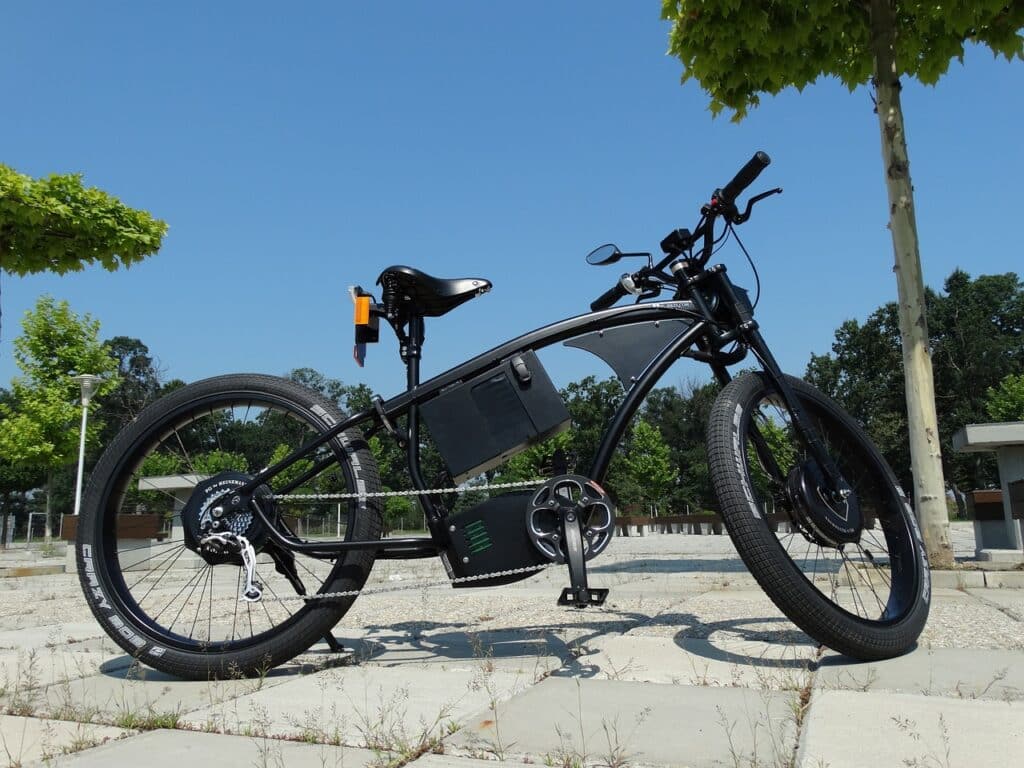Portland Launching E-Bike Rebate Program in 2025
Portland, Oregon, is poised to launch its own e-bike rebate program in 2025, marking a significant move toward promoting sustainable transportation and combating climate change. This initiative will be overseen by the Portland Clean Energy Community Benefits Fund (PCEF) Climate Investment Plan, which was implemented in 2023. The PCEF plan embodies a substantial commitment to environmental justice and climate action, with an overall budget of $750 million dedicated to various community-focused programs.
The PCEF plan emphasizes targeted investment in Black and Indigenous people of color, as well as low-income Portlanders, ensuring that the benefits of climate action are equitably distributed. By investing in these communities, the plan aims to address systemic inequalities while advancing climate resilience.
As part of this comprehensive strategy, $20 million has been designated for the e-bike rebate program. This program seeks to promote e-bike adoption by providing financial incentives that encourage more Portland residents to switch to e-bikes, thereby reducing reliance on fossil-fuel-powered vehicles. The rebate program is designed to make e-bikes more affordable for low-income residents, fostering inclusive access to sustainable transportation options.

The Portland Bureau of Planning and Sustainability (BPS) will administer the program, with authorization to hire staff and/or partner with organizations to ensure its successful implementation.
Seetha Ream-Rao, who leads the transportation decarbonization programs for PCEF, emphasized the critical importance of this initiative in her presentation to the city council. She framed the e-bike rebate program as “absolutely essential to meeting Portland’s net zero goals.” To support her argument, Ream-Rao cited findings from a recent Oregon Household Activities Survey, which revealed that the average daily trip in the Portland metro area is just six miles. Notably, 80 percent of these trips are conducted by car, highlighting the significant potential for e-bikes to replace short car journeys and reduce emissions.
Ream-Rao said, “That [distance] is well within the range of any e-bike on the market today and one of the biggest opportunities for carbon reductions.”
The e-bike rebate program will administer funds through a dedicated website, where applicants can apply for and receive vouchers. These vouchers can be redeemed at the point-of-sale with approved e-bike retailers. However, it is not yet clear if direct-to-consumer brands will be included in the program.
In addition to the rebate itself, the program includes several noteworthy components. One significant aspect is the funding of training for 50 new e-bike mechanics, which will enhance local expertise and create job opportunities within the e-bike industry. Another important provision is a pilot program aimed at residents of multifamily buildings, designed to create secure storage and charging facilities on the ground floors of these buildings, thus making e-bike ownership more convenient.
The rebate program will have three tiers to accommodate different needs. Standard e-bikes will receive a base rebate, though the specific amount has not yet been determined. Cargo e-bikes will be eligible for the base rebate plus an additional $750, acknowledging their greater utility and cost. Riders with disabilities who require adaptive e-bikes will receive a percentage of the e-bike’s cost, capped at a certain amount. While the program primarily targets low-income families, some rebates will also be set aside for middle-income households, although these amounts will be less.
Every voucher issued through the program will include an additional $200 “safety incentive,” allowing recipients to purchase essential safety gear and accessories such as helmets and locks. This ensures that new e-bike owners are equipped with the necessary tools to ride safely.
Sarah Iannarone, executive director of the nonprofit The Street Trust, estimates that the rebate program will lead to 180,000 miles traveled by e-bike, 100,000 new bike trips and 17,000 fewer car trips. Iannarone says that Portland needs its cycling infrastructure to expand exponentially.
Portland’s e-bike rebate program is a comprehensive and inclusive initiative designed to make e-bikes more accessible, promote sustainable transportation, and support the city’s climate goals. By offering financial incentives, training programs, and infrastructure improvements, the program aims to foster a more sustainable and equitable transportation network, aligning with Portland’s broader vision of environmental justice and climate resilience.
